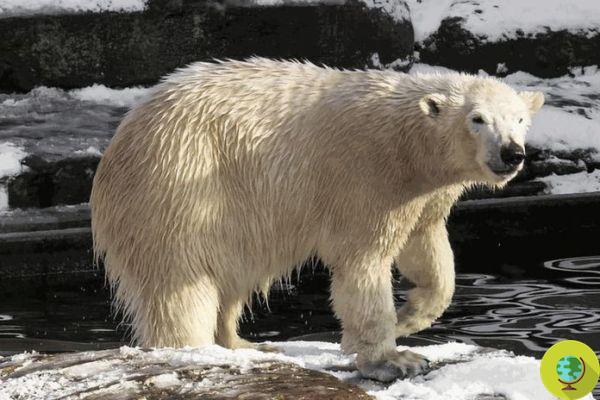
Poor bears. The export of polar bear fur, teeth and paws from Canada will continue unabated. After a bitter debate, the member countries of CITES, the Convention on International Trade in Endangered Species, have refused to definitively ban the international trade in polar bears, as proposed by the United States.
He is about to end up run over, his mother saves him
Poor bears. The export of fur, teeth and polar bear paws from Canada will continue unabated. After a bitter debate, the member countries of CITES, the Convention on International Trade in Endangered Species, have refused to definitively ban the international polar bear trade, as instead proposed by the United States.
The polar bear, in fact, is currently included in Appendix II of the CITES, which regulates international trade, while the United States would have liked it to be included in Appendix I, in which totally prohibits trade. An absolutely necessary measure, given that, in addition to climate change and the increasing loss of Arctic sea ice in which polar bears hunt, hunting still exerts intolerable additional pressure on the very small population that exists today.
“Science paints a clear future for the polar bear. But an export ban will give him one best chance of survival in the world, at least until we are able to tackle climate change as well, ”said the head of the US delegation to the 178 nations gathered in Bangkok. But Canada, home to two-thirds of the world's polar bears and the only nation to ensure exports, has argued that there isn't enough scientific evidence to show that bears are in danger of population collapse. For this reason, the Canadian head of delegation rejected the US proposal, defining it "based more on emotions than on science".
The result of this comparison was that 38 countries voted in favor of the US proposal e 42 against, while 46 abstained. Thus, some 600 polar bears will still be killed each year in Canada, some will die from anachronistic traditional Inuit hunts, others to become trophies for foreign hunters. Of the bears killed, about half will be exported as fur or other parts of the body.
“The world once again had a chance to intervene to save polar bears and it failed. Each year that passes without fully protecting this species is another year that brings us closer to its definitive disappearance" said Jeffrey Flocken, North America director of the International Fund for Animal Welfare. In fact, this decision could be reviewed by the plenary next week. And polar bears, which won't last long, cross… their paws.
Roberta Ragni
READ also
- Polar bear hunting reopens in Canada. The testimony of a hunter


























